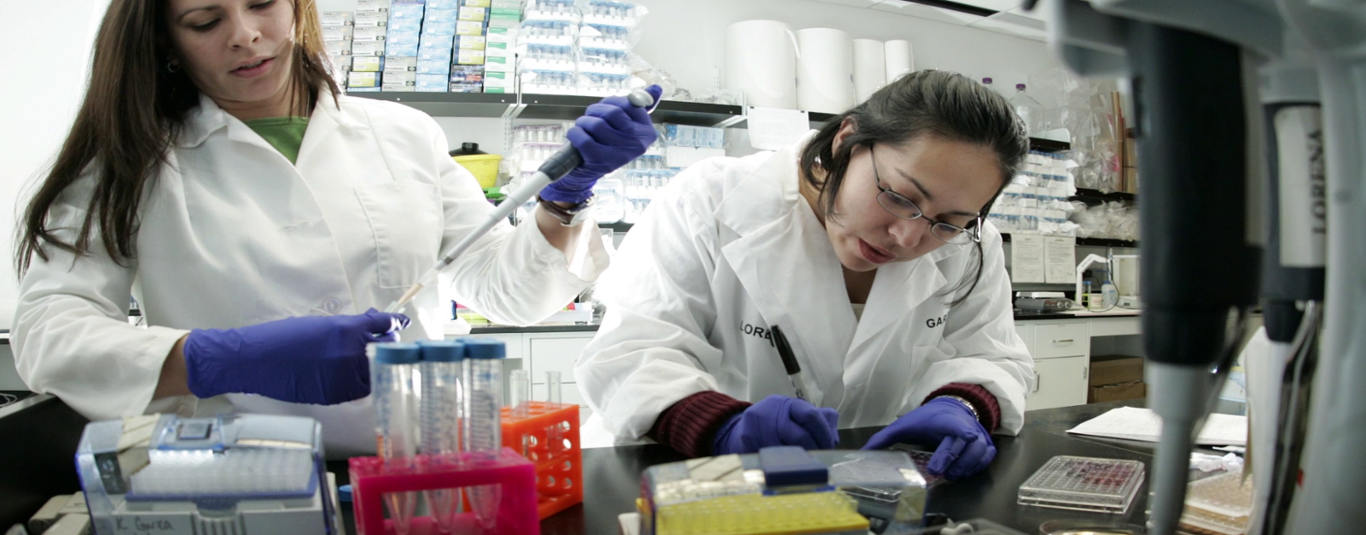
College of Science at a Glance
The College of Science programs and facilities, spanning six buildings, are designed to promote interdisciplinary teaching, learning, research, and community engagement among our students. The College supports the University in four key areas (http://www.utep.edu/science/). First, the Central Office for Readiness and Engagement (CORE) advises all Science undergraduate majors from entry through graduation. Second, the Medical Professions Institute (MPI) seeks to increase diversity in the medical profession community (physicians, dentists, veterinarians, pharmacists, etc.) by fostering the academic and professional development of UTEP students. Third, the College services all UTEP colleges by providing instructional support for all non-majors. Fourth, the College houses and supports the Border Biomedical Research Center (BBRC), a collaborative endeavor that includes faculty from other UTEP Colleges, collaborations with hospital systems, and community engagement via a sound infrastructure of core laboratories made possible with a $20M NIH grant to address border health issues in the Paso del Norte Region.
The College has 145 tenured/tenure-track faculty, as well as a number of primarily instructional faculty across five departments—Biological Sciences; Chemistry and Biochemistry; Earth, Environmental and Resource Sciences; Mathematical Sciences; and Physics. Each department offers at least one PhD program. There are 3,462 science majors, including 139 pursuing MS degrees and 255 pursuing PhDs. The interdisciplinary programs housed within the College of Science include the Bioinformatics program and the Computational Science program.
RESEARCH
The Science faculty submit an average of 200 research proposals annually. Currently, there are 212 active grants with a grant and subcontract portfolio of $115M. Annual research expenditures typically exceed $26M. Major strategic research thrusts in the College include: Understanding Earth’s Critical Zone; Strategies to Conserve and Sustain Limited Resources; Data Science, Quantum, Informatics and Analytics for Global Solutions; and Hispanic Health Disparities. Twenty current and former faculty members from UTEP have been recognized among the top 2% of the most cited researchers in the world within their respective specialty areas. Of those named in the Standard-Elsevier ranking released in fall 2024, eleven were from the College of Science. Graduate and undergraduate students actively participate side-by-side with faculty mentors, paving the way for their future contributions to the scientific community.
The Center for Integrative and Translational Research (CITR) is working to develop the first comprehensive data repository integrating determinants of health (social, behavioral, genetic, environmental, and physiological factors), stress biomarkers, and multi-omic biomarkers of disease as a platform for completing health related studies of Mexican-origin people, thereby leveraging the opportunities afforded by the community living in the El Paso/Juarez Borderplex. The Imaging and Behavioral Neuroscience (IBN) research facility opened in spring 2024. Indio Mountains Research Station (IMRS), a natural laboratory of 41,000 acres located in the Chihuahuan region, is the ideal place for natural science classes, particularly for courses in Geology, Environmental Science, Archeology, Astronomy, and Biology. The UTEP Department of Chemistry boasts a range of advanced equipment and technology, including NMR spectrometers (600 MHz and 300 MHz), X-ray single crystal diffractometer, XPS, AFM, SEM, Cryo-EM, GI-XRD, and profilometry for chemical analysis and thin film analysis, alongside instruments like a Bruker EMX Plus X-band EPR/ESR, JEOL AccuTOF TC-100 Mass Spectrometer, and DART (Direct Analysis in Real Time) for specialized research applications; allowing students to engage in diverse research areas like synthetic and analytical chemistry, materials science, and spectroscopy. The College also has local High Performance Computing services providing access to computing resources for complex data analysis, numerical problems, and scientific software code and access to Texas Advanced Computing Center with supercomputer capability. These and other technologies located within the college serve to provide faculty and students a competitive advantage.


